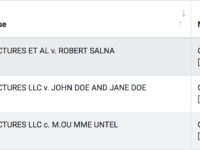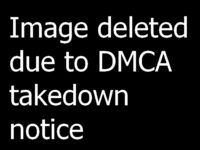The Federal Court of Canada has strongly rejected an attempt by Voltage Pictures, one of Canada’s most litigious copyright companies, to use a reverse class action lawsuit approach to sue potentially thousands of Canadians. The court ruled that Voltage met none of the requirements for class action certification and in the process confirmed doubts that merely pointing to an IP address is sufficient grounds for a copyright infringement claim. The Voltage strategy was launched in 2016 as it sought certification of the class, a declaration that each member of the class had infringed its copyright, an injunction stopping further infringement, damages, and costs of the legal proceedings (the issues were discussed in this Lawbytes podcast episode with James Plotkin).
Post Tagged with: "notice and notice"
The LawBytes Podcast, Episode 10: Lowdown on Lawsuits – James Plotkin on Copyright Threats, Notices, and Lawsuits
Copyright threats and lawsuits against individuals have been around in Canada since 2004, when they were rejected by the federal court. Those threats receded for about a decade, but now they’re back. Copyright notices, litigation threats, settlement demands, and actual lawsuits have re-emerged at the very time that the music and movie industries are experiencing record music streaming revenues in Canada and massive popularity of online video services. James Plotkin, a lawyer with Caza Saikaley in Ottawa, joins the podcast this week to help sort through what the notices mean, the implications of the threats and lawsuits, and where Canadian law stands on the issue.
No More Settlement Demands: New Rules for Canadian Copyright Notice-and-Notice System Receive Royal Assent
Bill C-86, the Budget Implementation Act that includes extensive copyright reforms, passed the Senate and received royal assent last week. With little fanfare, the rules for Canada’s copyright notice-and-notice have now changed. The law no longer requires Internet providers to forward notifications that include the following:
(a) an offer to settle the claimed infringement;
(b) a request or demand, made in relation to the claimed infringement, for payment or for personal information;
(c) a reference, including by way of hyperlink, to such an offer, request or demand; and
(d) any other information that may be prescribed by regulation
“Why Are You Recommending Notice and Takedown?”: The Canadian Bar Association’s Puzzling Position at the Copyright Review
The Canadian Bar Association appeared before the Standing Committee on Industry, Science and Technology earlier this week as part of the nearly-concluded copyright review. The CBA submitted an odd brief that focused on a mix of issues, including anti-counterfeiting, notice-and-notice, and artists’ resale rights. The notice-and-notice comments captured the attention of at least one MP, who was left puzzled by the position.
Tinkering With Copyright in Bill C-68: My Appearance Before the Standing Committee on Finance
I appeared earlier this week before the House of Commons Standing Committee on Finance as part of its review of Bill C-86, the Budget Implementation Act. The bill features extensive intellectual property provisions arising out of the IP strategy referenced in Budget 2018. My comments were consistent with previous posts on the changes to notice-and-notice, patents, and the Copyright Board. My opening remarks are posted below.











